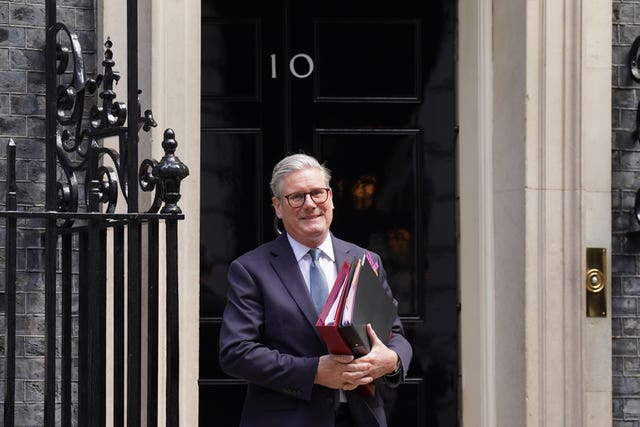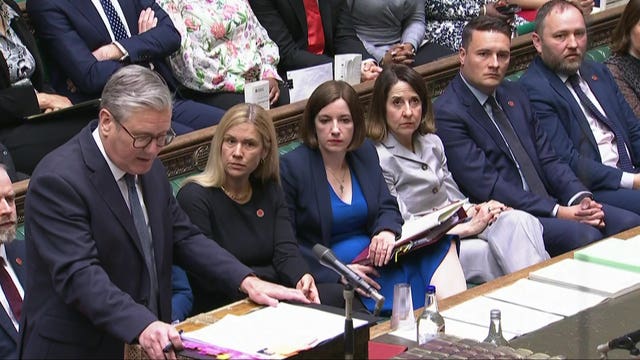Starmer calls for calm amid ‘rising tensions’ between India and Pakistan
Prime Minister Sir Keir Starmer said the UK and allies were pushing for de-escalation after exchanges of fire between the nuclear-armed neighbours.

Sir Keir Starmer called for India and Pakistan to take steps to ease the “rising tensions” following exchanges of fire in Kashmir.
The Prime Minister said the UK was encouraging “dialogue, de-escalation and the protection of civilians”.
Pakistan has described Delhi’s missile attacks as an “act of war” and responded with shelling on the Indian side of the line of control.

At least 26 people, including a child, are reported to have died in the missile strikes which came in retaliation to last month’s massacre of tourists in the Indian part of Kashmir.
Pakistan responded with shelling – killing seven civilians according to Indian police and medics – and claimed to have shot down Indian fighter jets.
At Prime Minister’s Questions, Sir Keir said: “Rising tensions between India and Pakistan will be of serious concern for many across Britain.
“We are engaging urgently with both countries as well as other international partners, encouraging dialogue, de-escalation and the protection of civilians.”

The Foreign Office has updated its travel advice for the region, warning against all travel within 10 kilometres of the India-Pakistan border and 10 miles of the line of control, the de facto border that divides disputed Kashmir.
In a separate statement, Foreign Secretary David Lammy called for India and Pakistan to “show restraint and engage in direct dialogue to find a swift, diplomatic path forward”.
Mr Lammy said he had “made clear to my counterparts in India and Pakistan that if this escalates further, nobody wins”.
He added: “The UK was clear in its condemnation of the horrific terrorist attack in Pahalgam last month. We need all sides to work urgently to see regional stability restored and ensure protection of civilians.”
Former prime minister Rishi Sunak backed India’s right to retaliate after the terrorist attack.
He said: “No nation should have to accept terrorist attacks being launched against it from land controlled by another country.
“India is justified in striking terrorist infrastructure. There can be no impunity for terrorists.”
Around 50 people gathered outside the High Commission of India in central London on Wednesday evening to protest over the violence in Kashmir.
Protesters chanted for Pakistan and called for peace in the region.
The escalation in the conflict between the two nuclear-armed powers follows last month’s massacre, which New Delhi has blamed Pakistan for.
Islamabad has denied responsibility for the attack by armed militants near Pahalgam.
Asked if Sir Keir agreed with his predecessor Mr Sunak, the Prime Minister’s official spokesman said: “We are going to continue to engage with both sides, we don’t want to see any escalation to this conflict.”
The spokesman said “the safety of British nationals in the region remains our top priority”.
Meanwhile, the Muslim Council of Britain (MCB) expressed concern about the impact of events in Kashmir on British Indian and Pakistani communities, noting “heightened emotions” in recent days.
Maswood Ahmed, deputy secretary general of the MCB, said: “In these tense times, we must all play our part.
“The MCB stands ready to engage with authorities, faith institutions and both Pakistani and Indian communities to ensure our streets remain peaceful.”
In the Commons, Foreign Office minister Hamish Falconer told MPs: “The British Pakistani and British Indian communities make a huge contribution to this country. We recognise this will be a difficult time for many.
“We look to all community and faith leaders to spread a message that now is a time for coming together across religious and ethnic differences.”





